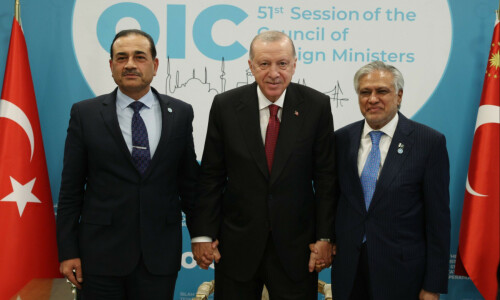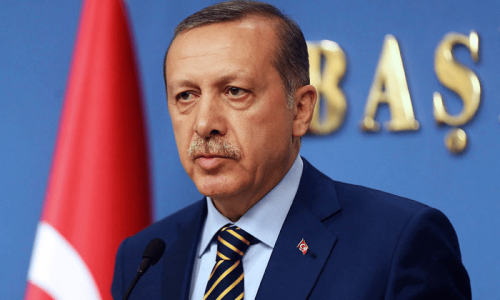WASHINGTON: The top US military commander for the Middle East has described Pakistan as a “phenomenal partner” in the fight against so-called Islamic State Khorasan (IS-K) militant group — crediting Islamabad’s counterterrorism operations, conducted with US intelligence support, with killing dozens of militants and capturing key figures, including one of the masterminds behind the Abbey Gate bombing in Kabul.
Centcom Commander General Michael Kurilla told the House Armed Services Committee on Tuesday that Pakistan remains essential to Washington’s regional counterterrorism strategy, especially as IS-K continues to regroup along the Pakistan-Afghanistan border.
“[IS-K] remains an active branch..., presenting a formidable global EXOPS [external operations] threat that requires a network of partners — such as Pakistan, Uzbekistan, & Tajikistan — to combat.”
He explained that Taliban action against IS-K in Afghanistan had “pushed a lot of them into the tribal areas on the Afghan-Pakistan border.” Through “a phenomenal partnership with Pakistan — they have gone after ISIS-Khorasan, killing dozens of them… and… captured at least five ISIS-Khorasan high-value individuals.”
Centcom chief lauds hunt for terror group along Pak-Afghan border
On Tuesday, Gen Kurilla also confirmed Pakistan’s role in capturing one of the key individuals behind the Abbey Gate bombing .
“They extradited back … one of the key individuals behind the Abbey Gate bombing. The first person... the chief of the army staff Munir [called] was me & said, ‘I’ve caught him, ready to extradite him back to US, please tell the Secretary of Defense & the President.’”
In another written statement to the Senate Committee on Armed Services, Gen. Kurilla elaborated further: “Pakistan continues to hunt IS-K in their border areas, executing dozens of operations to kill and capture multiple leaders, including the mastermind of the Abbey Gate attack that claimed 13 American lives.”
He identified the mastermind as Mohammad Sharifullah, noting that “the actions of our Pakistani partners that led to the arrest and extradition of Mohammad Sharifullah… highlights Pakistan’s value as a partner in countering CASA terror EXOPs threats worldwide, and it will only increase as the Taliban continues to face security challenges within its borders.”
Kurilla noted that “[IS and IS-K] continue to operate in Iraq, Syria, Afghanistan, and Pakistan and demonstrate the ability to direct, inspire, and enable terrorists worldwide.” He warned that “[IS-K] has been disrupted through pressure by both the Taliban in Afghanistan and Pakistan, though they continue to retain a significant network and freedom of manoeuvre in the tribal areas.”
“These sanctuaries,” he warned, “will give ISIS fighters the space to plan attacks against its ‘near enemy’ — our partners in the region — and its ultimate ‘far enemy’ — the US homeland.”
Still, IS-K remains active, “they… are continuing to move around… they’re hanging out… in that border area of Pakistan.” And their ambitions could pose a threat well beyond the region: “[IS-K] have attempted other attacks… in terms of plots against the homeland….”
He also noted that terror attacks on Pakistan’s western flank have mounted: “Over 1,000 terrorist attacks… killing about 700 security [personnel] and [2,500] civilians,” yet Pakistan “has been a phenomenal partner in the counterterrorism world.”
Published in Dawn, June 12th, 2025














































